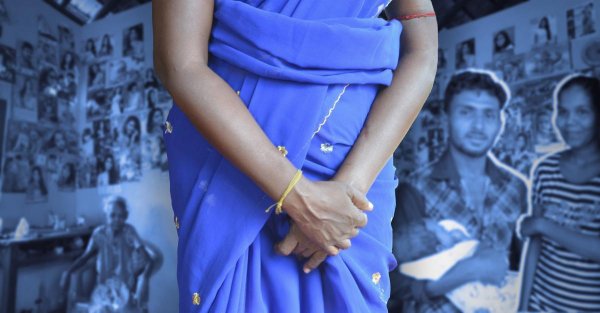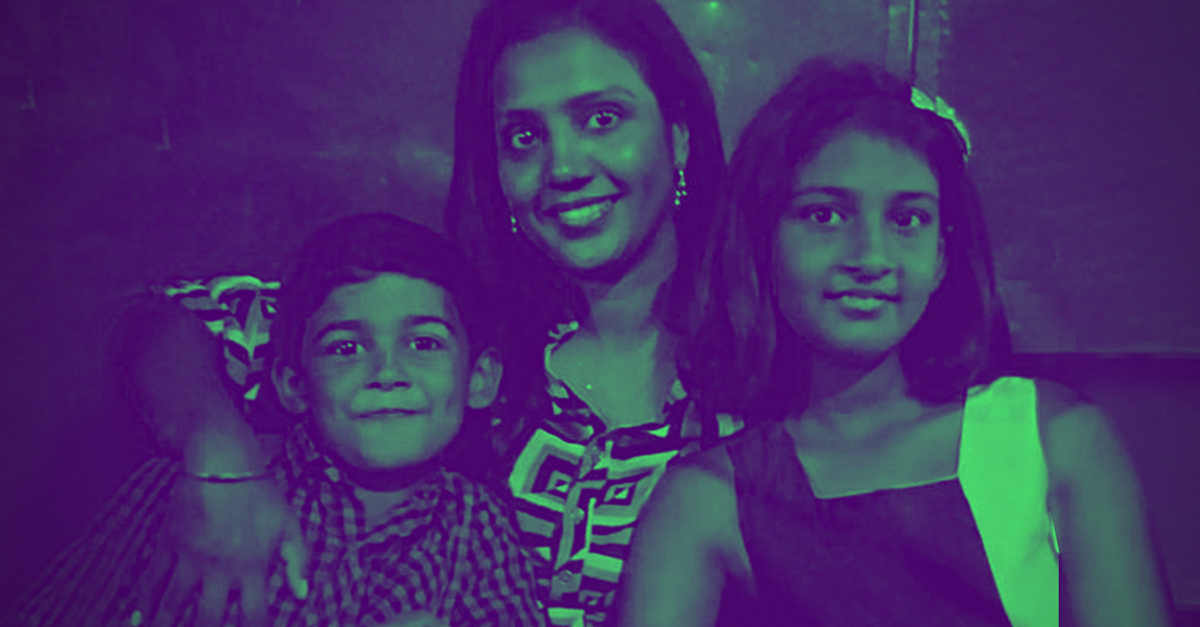
It was a little over a month ago that Thilina Harshani Apuhamy (34) attended Easter Sunday mass at the Katuwapitiya church in Negombo. At the time, her family and friends often described her as being energetic. She was also a well-known dancer in her area, having trained in the discipline during her time at Ave Maria Convent, a prominent girls’ school in Negombo. She was also a mother to three healthy children.
Today, Appuhamy is in the Intensive Care Unit (ICU) of Asiri Central Hospital, having barely survived the horrific bombing that took place at the Katuwapitiya church. She lost her left eye in the incident, and her body is paralysed from the neck down. Though she is now regaining slight movement in her hands and feet, she will never be able to walk—or dance—again.
Apuhamy’s seven-year-old son, Dulodh, was killed in the explosion, leaving her with two remaining children, Layara (10) and Dayodh (2). Though they have not suffered any major injuries from the explosion, their lives have taken an unforeseen new turn. As they navigate the trauma and fear that has been forced upon them in early childhood, their future hangs in the balance.
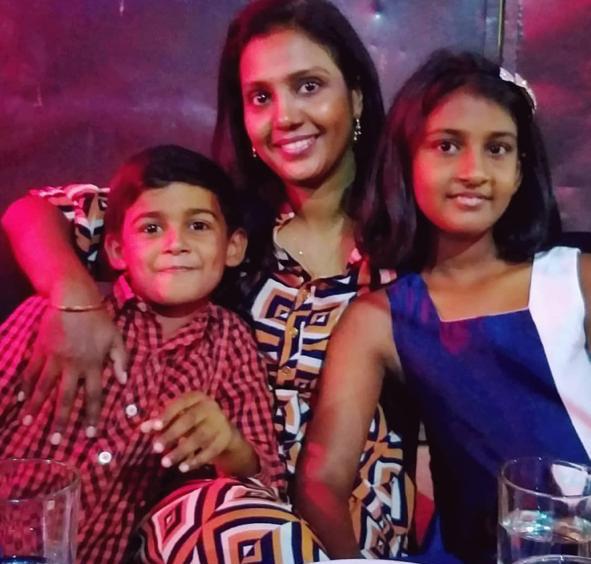
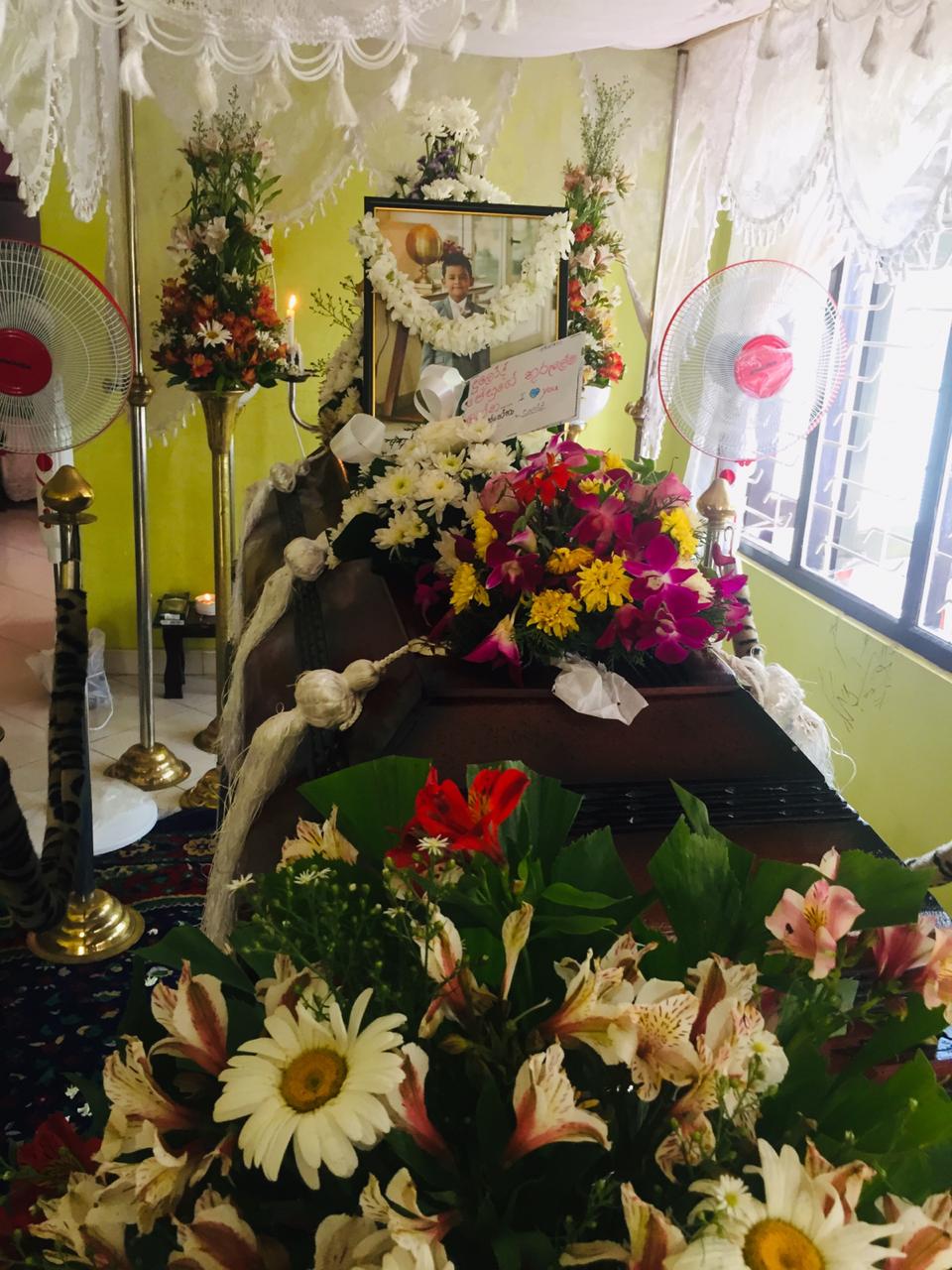
A Never-Ending Battle
In the month since the attacks, Apuhamy has gone through a lot of trauma, although thankfully, not in isolation. Her mother, Sylvia Gertroot Fernando, was also in attendance at the mass, and carried her daughter out of the wreckage.
“After the explosion, I looked over [to my daughter], and found her lying face down on the ground. She was clutching onto the little one, who was saved as a result,” she said. “I tried to carry her out, but her body was limp, and I kept slipping because the floor was covered in blood. With some help, we managed to get her out of the building, and she was sent to Ragama hospital.”
Apuhamy’s cousin, Shabnam Wallin, was having lunch with her family when she heard the news, and frantically tried to locate her family.
“It was the worst thing we could have imagined. The first thing we heard was that Dulodh was in pieces,” she said. “After we got his body and identified him, we began to try to locate my cousin and the rest of her family. I’m a medical student, so I called around and found out she was in Ragama. When I went there, I couldn’t identify her. Her face was fully swollen and looked distorted, and her left eye had completely popped out of its socket.”
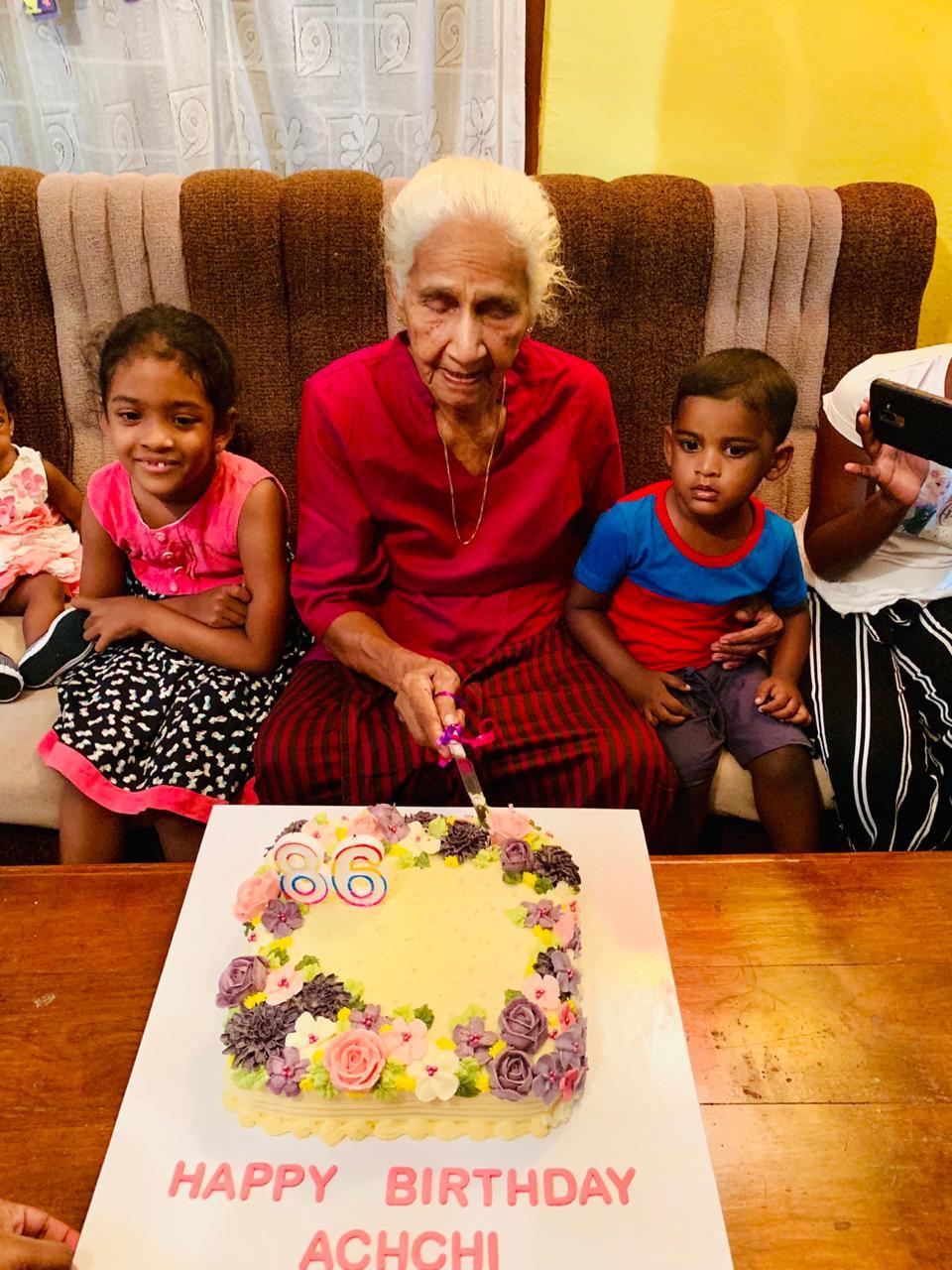
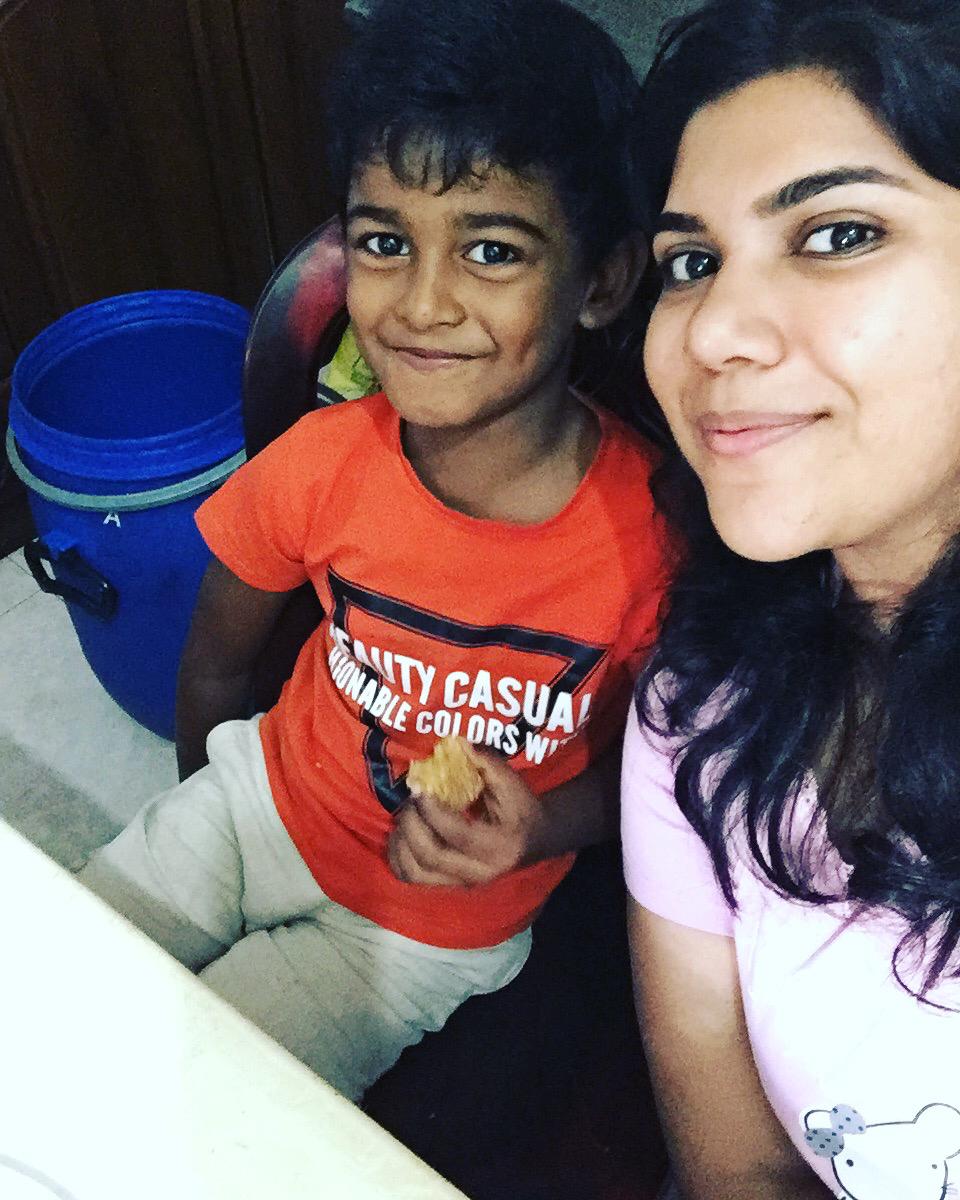
Apuhamy was paralysed by shrapnel that lodged in her spine, severing the nerves responsible for her motor functions. She was immediately taken into the operating theatre, where a high-risk surgery was performed to remove the shrapnel. Soon after this, surgery was performed on her eye to prevent the spread of infection, although recovering function of her left eye was impossible. Sight in her right eye remains fragile.
On the day of the attacks alone, Apuhamy went through five major and three minor surgeries. Each came with scores of potential complications and risks, and considering her already delicate state, the recovery process is likely to be fraught with impediments as well.
In order to survive, Apuhamy’s vitals need to be kept stable, and triggering any panic could potentially be fatal. For this reason, her family has not divulged details of what happened to her. She is aware that there was a bomb blast, but she doesn’t know who was behind it, or why it happened. She is also unaware that she is paralysed, that she could be potentially blind, and worst of all, that her son Dulodh is no more.
The Road To A Dim Recovery
Apuhamy’s family managed to secure her a bed in the Neurotrauma Emergency Care Unit (ECU) at Asiri Central Hospital. Though initially, it looked like she would not need any more procedures, her family sought a second opinion from a leading neurosurgeon in Sri Lanka, who told them it was necessary to have an additional operation performed.
Greenlighting this surgery was one of the most difficult decisions they had to make, but ultimately, they decided they would go ahead with it,
“My cousin is an exceptionally strong person. She has survived so much. What that told me was that she was meant to be alive,” said Wallin. “I think this is what made us decide to have her do an additional surgery. We weighed the pros and cons. We knew what it could do to someone in her condition, but we decided that should have the chance to live.”
Although Apuhamy’s family initially began raising funds through social media to help them cover the soaring costs of the new procedure, all medical fees were eventually waived off by the hospital. The family immediately called off its fundraising efforts and vowed to use the money they had already been given towards Apuhamy’s future expenses.
“There are so many complications that a patient faces when they are immobilised,” said Wallin. “In the future, she is not going to be able to urinate, which means we will have to invest in an in-dwelling catheter. She will need round the clock, professional care, to help her eat, bathe and change clothes. We will also need to get her a wheelchair. All of the money we have raised will go towards getting these facilities set up for her.”
While Apuhamy’s family begins to prepare for the trying future she has ahead of her, they take comfort in small steps she has made towards recovery. Steadily, her hands are beginning to move, and if everything goes as planned, she will be transferred out of the ICU in three days. Though she is unable to produce any sounds, she has begun mouthing words and phrases in order to communicate with those around her.
Her remaining two children have been living under the care of their grandparents. They have not yet seen their mother.
“Now, the next thing we must do is break the news to her. She deserves to know what happened, and we need to take the children to see her,” said Fernando. “It is going to be an extremely difficult thing to do, but they deserve to be together, and my daughter deserves to be able to grieve for her son.”




.jpg?w=600)
